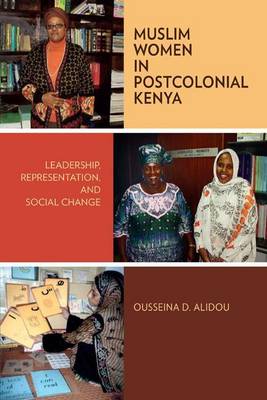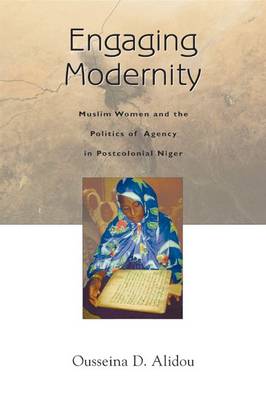Women in Africa and the Diaspora
2 total works
In education, journalism, legislative politics, social justice, health, law, and other arenas, Muslim women across Kenya are emerging as leaders in local, national, and international contexts, advancing reforms through their activism. Muslim Women in Postcolonial Kenya draws on extensive interviews with six such women, revealing how their religious and moral beliefs shape reform movements that bridge ethnic divides and foster alliances in service of creating a just, multicultural, multiethnic, and multireligious democratic citizenship.
Mwalim Azara Mudira opened a school of theology for Muslim women. Nazlin Omar Rajput of The Nur magazine was a pioneer in reporting on HIV/AIDS in the Muslim community. Amina Abubakar, host of a women's radio show, has publicly addressed the sensitive subject of sexual crimes against Muslim women. Two women who are members of parliament are creating new socioeconomic and political opportunities for girls and women, within a framework that still embraces traditional values of marriage and motherhood.
Examining the interplay of gender, agency, and autonomy, Ousseina D. Alidou shows how these Muslim women have effected change in the home, the school, the mosque, the media, and more-and she illuminates their determination as actors to challenge the oppressive influences of male-dominated power structures. In looking at differences as opportunities rather than obstacles, these women reflect a new sensibility among Muslim women and an effort to redefine the meaning of women's citizenship within their own community of faith and within the nation.
Mwalim Azara Mudira opened a school of theology for Muslim women. Nazlin Omar Rajput of The Nur magazine was a pioneer in reporting on HIV/AIDS in the Muslim community. Amina Abubakar, host of a women's radio show, has publicly addressed the sensitive subject of sexual crimes against Muslim women. Two women who are members of parliament are creating new socioeconomic and political opportunities for girls and women, within a framework that still embraces traditional values of marriage and motherhood.
Examining the interplay of gender, agency, and autonomy, Ousseina D. Alidou shows how these Muslim women have effected change in the home, the school, the mosque, the media, and more-and she illuminates their determination as actors to challenge the oppressive influences of male-dominated power structures. In looking at differences as opportunities rather than obstacles, these women reflect a new sensibility among Muslim women and an effort to redefine the meaning of women's citizenship within their own community of faith and within the nation.
Engaging Modernity is Ousseina Alidou's rich and compelling portrait of Muslim women in Niger as they confront the challenges and opportunities of the twentieth century. Contrary to Western stereotypes of passive subordination, these women are taking control of their own lives and resisting domination from indigenous traditions, westernization, and Islam alike. Based on thorough scholarly research and extensive fieldwork - including a wealth of interviews - Alidou's work offers insights into the meaning of modernity for Muslim women in Niger. Mixing biography with sociological data, social theory, and linguistic analysis, this is a multilayered vision of political Islam, education, popular culture, and war and its aftermath. This is a gripping look at one of the Muslim world's most powerful untold stories.

